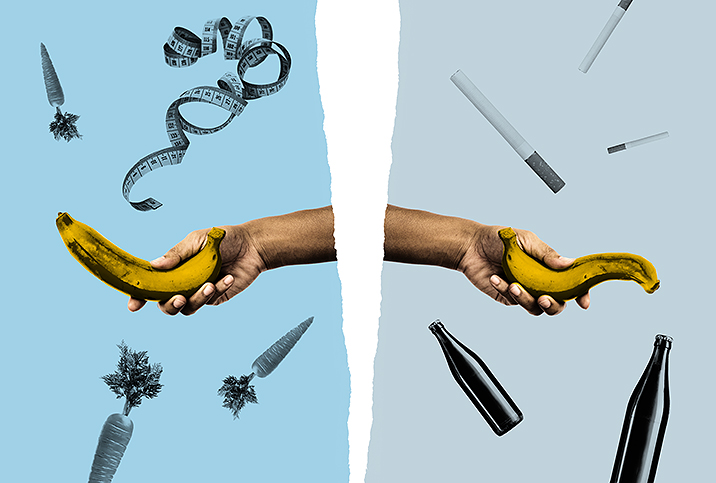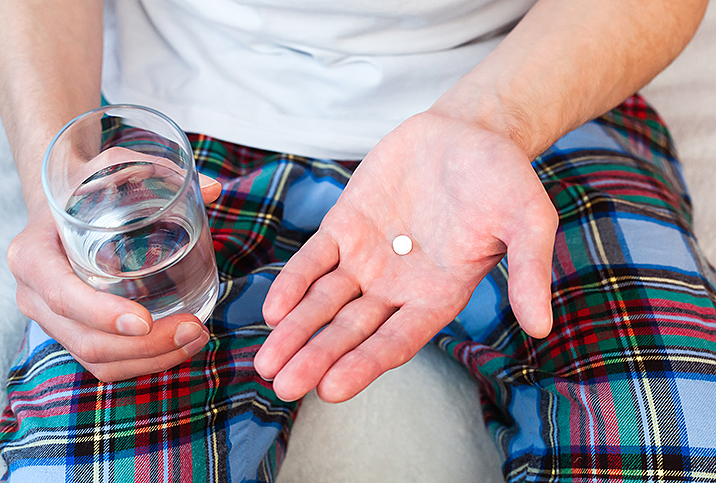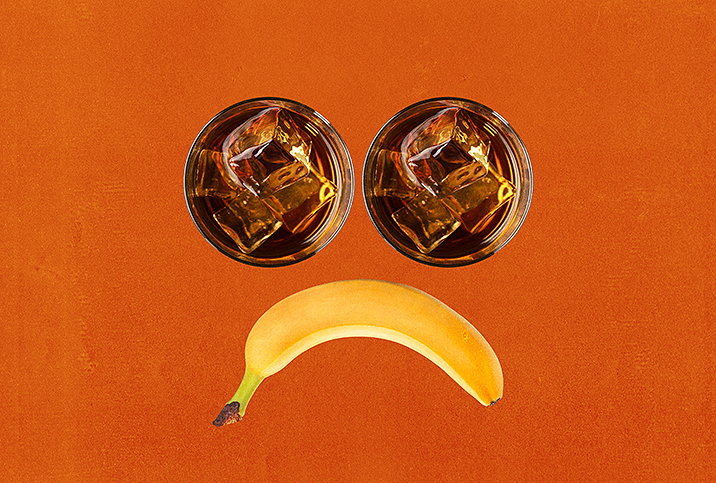5 Numbers That Impact ED

Erectile dysfunction (ED) is a common disorder that affects about 30 million men in the United States alone, but despite the commonality, it's not something any man would choose to experience. Erectile dysfunction often leads to feelings of shame, anxiety and depression, and can strain romantic and sexual relationships if left untreated.
Thankfully, you can take several steps toward preventing ED. Here are five key numbers to keep in mind if you want to make lifestyle changes that can lower your chances of ED.
25: The BMI found in 79 percent of ED cases
Obesity poses numerous health risks: diabetes, high blood pressure, stroke, coronary heart disease and osteoarthritis, among others. Research also indicates that diabetes and obesity are linked to 8 million cases of ED in the United States.
The body mass index (BMI) is a measure of body fat based on height and weight. For men who fall into the "overweight" range (BMI of 25 to 29.9), the risk of experiencing ED increases 1.5 times, and for those who are in the "obese" range (BMI of 30 or higher), that rate increases to three times more likely, according to a 2014 Polish medical review archived in the National Library of Medicine. The article also stated that 79 percent of men with erectile disorders have BMI numbers of 25 or greater. This isn't an exact science, though—as athletes or bodybuilders can have a deceptively high height-to-weight ratio, the BMI calculator can incorrectly place them in the obese category.
There is a direct correlation between the risk of sexual dysfunction and a person's weight, and obesity is considered an independent factor in ED cases, mostly with consideration to the hormonal imbalances, insulin resistance, psychological factors and lack of physical activity associated with obesity.
Giddy urologist Dr. Edwin Morales explains the connection between diabetes and erectile dysfunction in the ED Guide video series. Click here to watch the video.
0.08: The BAC level at which you're too drunk to drive (among other things)
In every state but Utah, a blood alcohol content (BAC) level of 0.08 percent is considered impairment enough to warrant a driving under the influence (DUI) ticket (in Utah, it's 0.05 percent). While a few drinks might ease anxiety and boost desire, you have to keep in mind that alcohol is a depressant and will slow the activity of the central nervous system. So why does that affect your erections?
When the central nervous system slows, other parts of the body struggle to communicate with it efficiently—the signals required for specific tasks such as problem-solving and reasoning don't arrive as quickly. The same goes for erections. Simply put, your penis doesn't know it's supposed to get hard.
Beyond that, alcohol is a diuretic that causes you to urinate more and become dehydrated, which decreases the blood flow to the penis, meaning you might not have enough blood down there to get it up.
150: The minutes of exercise needed each week to lower the risk of ED
It's no secret that exercise is necessary for maintaining a healthy lifestyle. Still, if you need more motivation to be active, a 2006 study suggests that a few hours of exercise each week can reduce your risk of ED.
The study reported that men who ran for an hour and a half each week or did three hours of rigorous outdoor activity were 20 percent less likely to develop ED than those who didn't exercise. And that percentage increased as weekly physical activity increased. Men who ran two and a half hours each week were 30 percent less likely to develop ED.
Coincidentally, the Centers for Disease Control and Prevention (CDC) recommends that adults get a minimum of 150 minutes of moderate-intensity aerobic activity each week, along with muscle-strengthening routines.
Giddy expert Dr. Bob Harding shares some guidance about exercises beneficial for ED treatment in the ED Guide video series. Click here to watch the video.
7: The minimum hours of sleep you need per night
Of course, sleep is an essential requirement of life that gives your body time to recharge, reset and heal. But new studies are noticing an association between sleep, sleep disorders and erectile dysfunction.
Men who are sleep-deprived also experience low energy and, as a result, low libido. Typically, this is because sleep is a vital time for the body to produce testosterone. Lower testosterone levels result in lower libido, which may affect your ability to get and maintain an erection. Generally, experts recommend adults get seven to nine hours of sleep per night.
52: The percentage of men who will experience ED
It's not hyperbolic to say that most men will experience some form of ED in their lifetime, whether it's a temporary or long-term condition. While estimates vary widely, the Massachusetts Male Aging Study back in the 1990s pegged the prevalence of ED at 52 percent. This number is significant because despite how common the occurrence is, most men don't want to admit they're having trouble getting or maintaining an erection. Many men take it as a sign of weakness or that it questions their masculinity. But it is a widespread issue, and it's nothing to be ashamed about.
If you're experiencing feelings of shame brought about by ED, remember that you're not alone. In fact, you're in the majority.


















